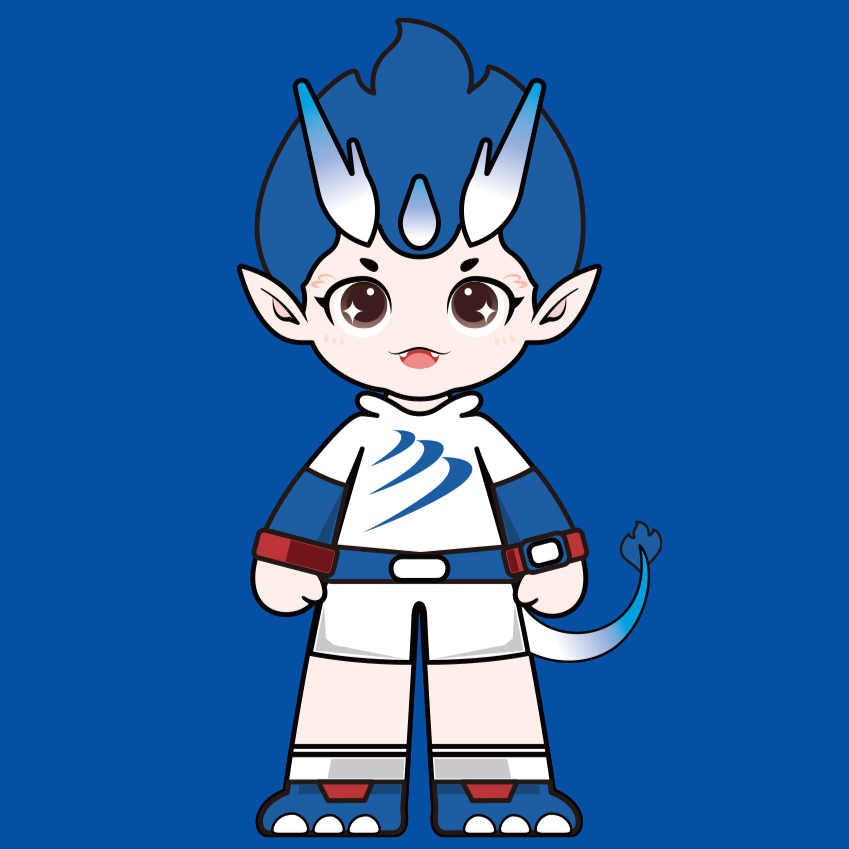
зҺ°еңЁиҝӣиЎҢж—¶зҡ„е®ҡд№ү
зҺ°еңЁиҝӣиЎҢж—¶жҳҜиӢұиҜӯзҡ„дёҖз§Қж—¶жҖҒпјҢиЎЁзӨәзҺ°еңЁиҝӣиЎҢзҡ„еҠЁдҪңжҲ–еӯҳеңЁзҡ„зҠ¶жҖҒгҖӮзҺ°еңЁиҝӣиЎҢж—¶иЎЁзӨәеҠЁдҪңеҸ‘з”ҹзҡ„ж—¶й—ҙжҳҜвҖңзҺ°еңЁвҖқпјҢеҠЁдҪңзӣ®еүҚзҡ„зҠ¶жҖҒжҳҜвҖңжӯЈеңЁиҝӣиЎҢдёӯвҖқгҖӮеңЁиӢұиҜӯж—¶жҖҒдёӯпјҢвҖңж—¶вҖңжҢҮеҠЁдҪңеҸ‘з”ҹзҡ„ж—¶й—ҙпјҢвҖқжҖҒвҖңжҢҮеҠЁдҪңзҡ„ж ·еӯҗе’ҢзҠ¶жҖҒгҖӮ
1гҖҒиЎЁзӨәзҺ°еңЁжӯЈеңЁиҝӣиЎҢзҡ„еҠЁдҪңгҖӮ
2гҖҒиЎЁзӨәзҺ°йҳ¶ж®өжӯЈеңЁиҝӣиЎҢжҲ–д»ҺдәӢзҡ„еҠЁдҪңгҖӮ
жү©еұ•иө„ж–ҷ
еҸҘеһӢеҲҶжһҗпјҡ
1гҖҒдёҖиҲ¬з–‘й—®еҸҘжҳҜе°ҶbeеҠЁиҜҚ移еҲ°дё»иҜӯеүҚйқўпјҢеҸҘжң«еҠ й—®еҸ·пјҢиҜ»еҚҮи°ғгҖӮ
be+дё»иҜӯ+doing sth
в—ҮAre they putting up the scaffolding? Yes, they are. / No, they aren't.
в—ҮIs he showing a foreign guest round the city? Yes, he is. / No, he isn't.
2гҖҒеҗҰе®ҡеҸҘејҸжҳҜеңЁbeеҠЁиҜҚеҗҺеҠ notгҖӮ
дё»иҜӯ+be+not+doing sth
в—ҮI am not working.
в—ҮHe isn't running on the track.
в—ҮThe students aren't playing football.
2023-12-10 В· зҷҫеәҰи®ӨиҜҒ:дә‘еҚ—ж–°еҚҺз”өи„‘иҒҢдёҡеҹ№и®ӯеӯҰж Ўе®ҳж–№иҙҰеҸ·
 дә‘еҚ—ж–°еҚҺз”өи„‘еӯҰж Ў
дә‘еҚ—ж–°еҚҺз”өи„‘еӯҰж Ў

зҺ°еңЁиҝӣиЎҢж—¶пјҲpresent continuous tenseпјүзІҫи®І
1гҖҒзҺ°еңЁиҝӣиЎҢж—¶зҡ„е®ҡд№үпјҡиЎЁзӨәиҜҙиҜқж—¶еҲ»жӯЈеңЁиҝӣиЎҢзҡ„еҠЁдҪңжҲ–зӣ®еүҚиҝҷдёӘйҳ¶ж®өжӯЈеңЁиҝӣиЎҢзҡ„еҠЁдҪңгҖӮ
2гҖҒзҺ°еңЁиҝӣиЎҢж—¶зҡ„жһ„жҲҗпјҡдё»иҜӯ+am/is/are+ V-ing(еҠЁиҜҚзҺ°еңЁеҲҶиҜҚеҪўејҸ)
дҫӢеҸҘпјҡ
I am watching TV now.жҲ‘зҺ°еңЁжӯЈеңЁзңӢз”өи§ҶгҖӮ
LookпјҒJackson is playing basketball on the playground.зңӢпјҒжқ°е…ӢйҖҠжӯЈеңЁж“ҚеңәдёҠжү“зҜ®зҗғгҖӮ
The teachers are reading books in the office at present.зҺ°еңЁиҖҒеёҲ们жӯЈеңЁеҠһе…¬е®ӨиҜ»д№ҰгҖӮ
3гҖҒзҺ°еңЁиҝӣиЎҢж—¶зҡ„ж Үеҝ—иҜҚпјҲи§ҒеҲ°иҝҷдәӣиҜҚпјҢйғҪиҰҒз”ЁзҺ°еңЁиҝӣиЎҢж—¶пјүпјҡlook зңӢпјҢlisten еҗ¬пјҢnow зҺ°еңЁпјҢat this moment жӯӨеҲ»пјҢat present зӣ®еүҚпјҢthis week жң¬е‘ЁпјҢtoday д»ҠеӨ©пјҢthese days иҝҷеҮ еӨ©гҖӮ
дҫӢеҸҘпјҡ
ListenпјҢthe girl is playing the piano.еҗ¬пјҢйӮЈдёӘеҘіеӯ©жӯЈеңЁеј№й’ўзҗҙгҖӮ
She is always sleeping these daysпјҢmaybe she is ill.еҘ№иҝҷеҮ еӨ©жҖ»жҳҜзқЎзқҖпјҢд№ҹи®ёеҘ№з”ҹз—…дәҶгҖӮ
The boys are playing ball games this week because they do not have to go to school.з”·еӯ©д»¬жң¬е‘ЁдёҖзӣҙеңЁжү“зҗғпјҢеӣ дёә他们дёҚеҝ…дёҠеӯҰгҖӮ
4гҖҒзҺ°еңЁеҲҶиҜҚV-ingзҡ„еҸҳеҢ–规еҫӢпјҡ
пјҲ1пјүдёҖиҲ¬еңЁжғ…еҶөдёӢпјҢеңЁеҠЁиҜҚиҜҚе°ҫзӣҙжҺҘеҠ -ingгҖӮ
goвҖ”going playвҖ”playing knowвҖ”knowing
пјҲ2пјүд»ҘдёҚеҸ‘йҹізҡ„еӯ—жҜҚeз»“е°ҫеҠЁиҜҚпјҢе…ҲеҺ»eеҶҚеҠ -ingгҖӮ
makeвҖ”making arriveвҖ”arriving comeвҖ”coming
пјҲ3пјүд»ҘйҮҚиҜ»й—ӯйҹіиҠӮз»“е°ҫпјҢдё”еҠЁиҜҚиҜҚе°ҫеҸӘжңүдёҖдёӘиҫ…йҹіеӯ—жҜҚж—¶пјҢе…ҲеҸҢеҶҷиҝҷдёӘиҫ…йҹіеӯ—жҜҚпјҢеҶҚеҠ -ingгҖӮ
runвҖ”running stopвҖ”stopping swimвҖ”swimming putвҖ”putting sitвҖ”sitting beginвҖ”beginning
planвҖ”planning cutвҖ”cutting getвҖ”getting shopвҖ”shopping chatвҖ”chatting regretвҖ”regretting digвҖ”digging
пјҲ4пјүе°‘ж•°д»Ҙ-ieз»“е°ҫпјҢе…Ҳе°Ҷ-ieж”№жҲҗyпјҢеҶҚеҠ -ingгҖӮ
tieвҖ”tying dieвҖ”dying lieвҖ”lying
5гҖҒзҺ°еңЁиҝӣиЎҢж—¶зҡ„з”Ёжі•
пјҲ1пјүиЎЁзӨәиҜҙиҜқж—¶жӯЈеңЁиҝӣиЎҢзҡ„еҠЁдҪң
The telephone is ringing. Would you answer it, please? з”өиҜқжӯЈеңЁе“Қ,дҪ иғҪеҗҰжҺҘдёҖдёӢ?
Now watch carefully and see what is happening in the experiment.зҺ°еңЁд»”з»Ҷи§ӮеҜҹ,зңӢеңЁе®һйӘҢдёӯеҸ‘з”ҹзқҖд»Җд№ҲзҺ°иұЎгҖӮ
пјҲ2пјүиЎЁзӨәзҺ°йҳ¶ж®өжӯЈеңЁиҝӣиЎҢзҡ„еҠЁдҪңпјҢиҷҪ然жӯӨж—¶жӯӨеҲ»еҠЁдҪңдёҚдёҖе®ҡжӯЈеңЁиҝӣиЎҢ
George is working on a new book about stories in schools.д№”жІ»еңЁеҶҷдёҖжң¬е…ідәҺж Ўеӣӯж•…дәӢзҡ„ж–°д№ҰгҖӮ
I am now visiting Guangzhou this week.жҲ‘жң¬е‘ЁжӯЈеңЁжёёи§Ҳе№ҝе·һгҖӮ
пјҲ3пјүиЎЁзӨәжӯӨж—¶жӯӨеҲ»жҹҗдёҖеҠЁдҪңдёҚж–ӯең°йҮҚеӨҚ
The boy is jumping with great joy at the sight of toysдёҖзңӢеҲ°зҺ©е…·,е°Ҹз”·еӯ©й«ҳе…ҙеҫ—дёҚеҒңең°и·ігҖӮ
пјҲ4пјүиЎЁзӨәе°ҶиҰҒеҸ‘з”ҹзҡ„еҠЁдҪң
жңүдәӣеҠЁиҜҚ,дё»иҰҒжҳҜйқһ延з»ӯжҖ§еҠЁиҜҚпјҢеҰӮarrive, come, go, leaveзӯүеёёз”ЁзҺ°еңЁиҝӣиЎҢж—¶иЎЁзӨәжҢүи®ЎеҲ’жҲ–жү“з®—е°ҶиҰҒеҒҡзҡ„дәӢжғ…гҖӮ
We are leaving for Germany next week.дёӢе‘ЁжҲ‘们е°ҶеҮәеҸ‘еҺ»еҫ·еӣҪгҖӮ
Are you staying in Guangzhou for a week? дҪ жү“з®—еңЁе№ҝе·һеҫ…дёҖе‘Ёеҗ—?
пјҲ5пјүеңЁж—¶й—ҙжҲ–жқЎд»¶зҠ¶иҜӯд»ҺеҸҘдёӯд»Јжӣҝе°ҶжқҘиҝӣиЎҢж—¶
If I am sleeping when he comes, wake me up, please,д»–жқҘж—¶еҰӮжһңжҲ‘еңЁзқЎи§ү,иҜ·еҸ«йҶ’жҲ‘гҖӮ
пјҲ6пјүдёҺеүҜиҜҚ alwaysгҖҒusuallyгҖҒforeverзӯүиҝһз”Ё,иЎЁиҫҫиҜҙиҜқиҖ…зҡ„жҹҗз§Қж„ҹжғ…жҲ–еҜ№жҹҗдёҖеҝғзҗҶзҡ„жҸҸиҝ°
She is always thinking of others.еҘ№жҖ»жҳҜдёәеҲ«дәәзқҖжғігҖӮ(иөһжү¬)
Why are you always coming late for class? дҪ дёәд»Җд№ҲжҖ»жҳҜдёҠиҜҫиҝҹеҲ°?(жү№иҜ„)




